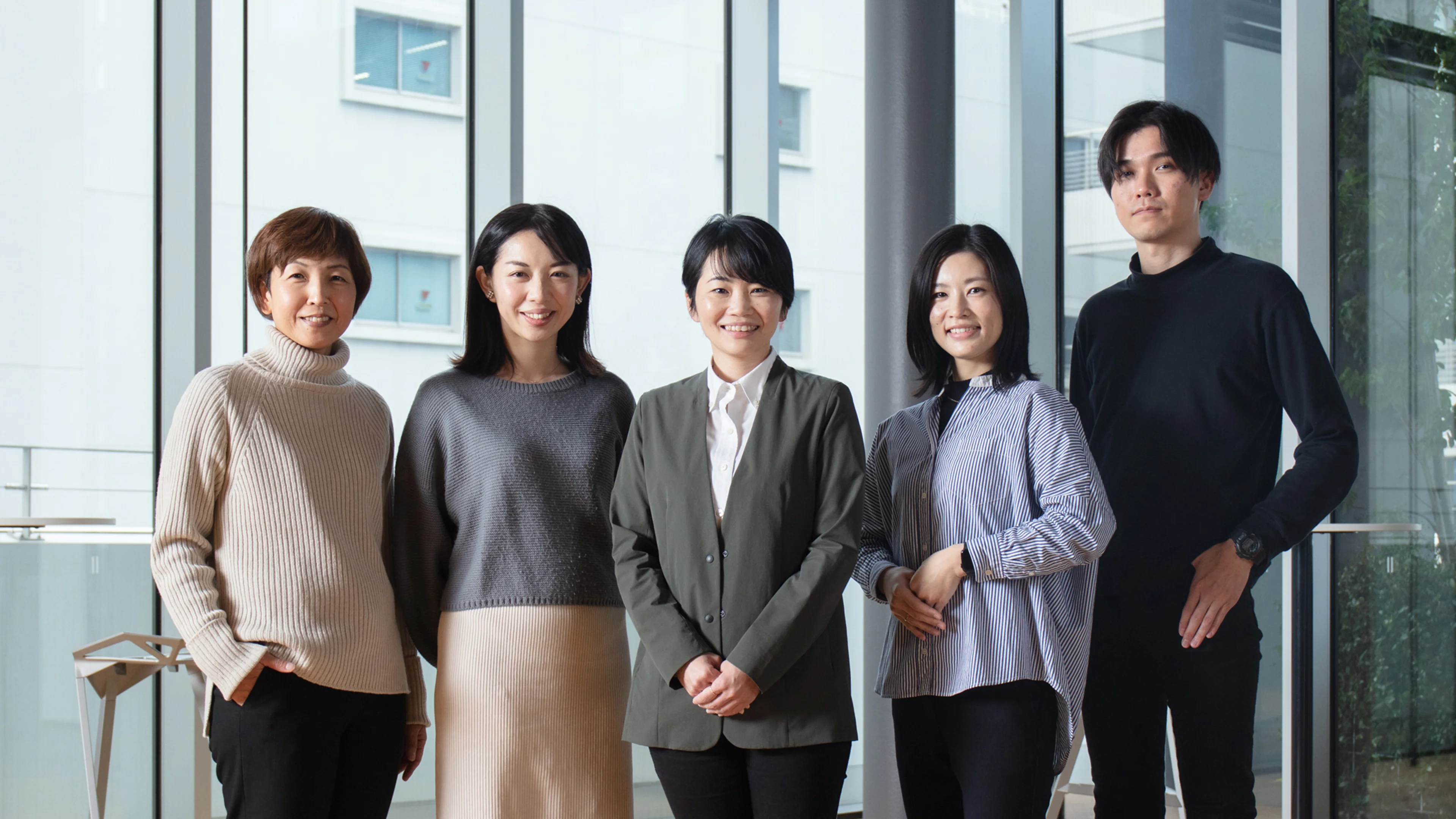

May 17, 2023
CAREER & LIFEChallenge of a female manager,a strong supporter of DENSO Logistics
Learning the importance of teamwork through setbacks and an overseas assignment
Hisano Yamashita joined DENSO Corporation in 2005 and has utilized her knowledge and experience in Economic Partnership Agreements (EPAs) to serve as a leader for the company. Making use of experience gained in overcoming various obstacles and working overseas, she has built an impressive career. Reminiscing on teamwork with fellow associates, Yamashita comments, “All of my colleagues in DENSO have made me what I am today.” Let’s explore her story further.
Contents of this article
A highly knowledgeable EPA specialist inspired to join DENSO by its welcoming employees
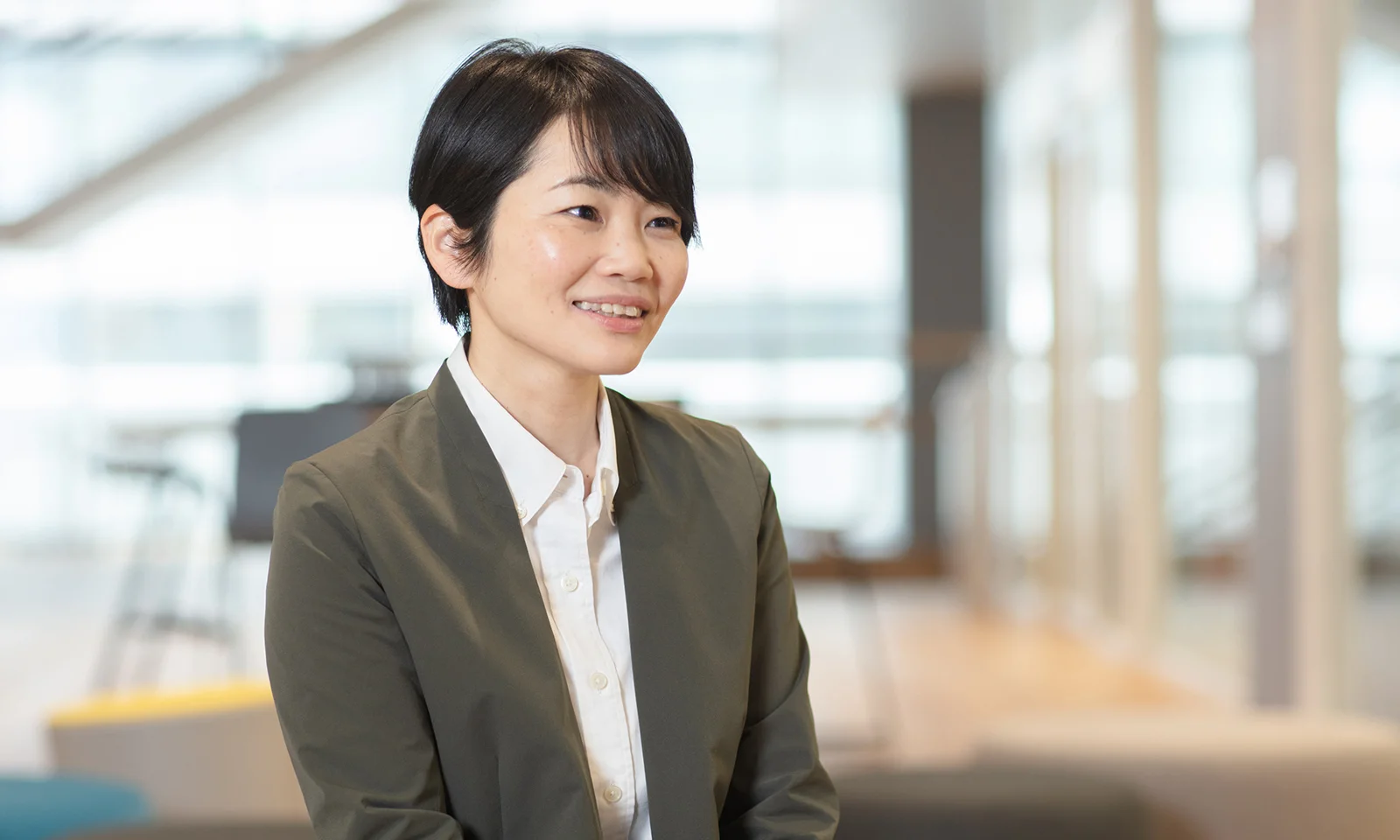
Hisano Yamashita works for DENSO’s Global Production Control Dept. of Production Control Div. In order to promote proper use of EPAs, which reduce tariffs for exported DENSO products, she is building in-house systems and operational frameworks. Since January 2022, she has served as a manager.
Yamashita: “EPAs reduce tariffs for imports and exports between member countries and regions. In order to take advantage of these benefits, it is necessary to obtain a certificate of origin, or CO, which certifies the place of origin of a product. The rules governing this certification process are extremely complex, and any mistake in certification or usage can lead to severe penalties. To prevent this, I work hard every day to ensure that COs are precisely obtained whenever needed.”
Coordination with various parties, both within and outside of DENSO, is vital for the CO process.
Yamashita: “Information on production, pricing and other details must be obtained from various departments throughout DENSO in order to complete a CO. Therefore, we set up a system for working on the issue with about 60 members throughout the company by asking each business unit to select persons in charge of EPA-related tasks. When it’s impossible for DENSO alone to fully certify products as being made in Japan, we ask the relevant procurement divisions to coordinate with suppliers and DENSO Group companies to acquire the necessary information.
And because it’s necessary to ensure correct interpretations of highly specialized articles of the agreement, and to correctly utilize the harmonized system (HS) codes, the item numbers used in international trade, we often rely on highly skilled specialists outside the company.”
Now Yamashita utilizes her experience and knowledge of EPAs to lead efforts to increase export competitiveness of DENSO products, but she hoped to join DENSO by pure reason that she was attracted to its employee she encountered in the recruitment selection process.
Yamashita: “I’m from Aichi Prefecture (where DENSO is headquartered), so I’ve always had an affinity for DENSO. I attended a university outside the prefecture, but I naturally applied for jobs in companies in Aichi when I graduated from the university, and I encountered DENSO employees with glittering eyes in the recruitment process. They talked passionately about what they wanted to accomplish at DENSO, and they were kind and listened to my concerns even though I was just a student they met for the first time. I remember that spending time with those experienced DENSO associates made me feel very comfortable.
Also, I wanted to work overseas because I had lived overseas when I was a child. And I thought I could make use of my English skills of my strength in DENSO. That’s why I wanted to work there.”
English ability alone is not enough: confidence gained from focusing on regular tasks, one day at a time
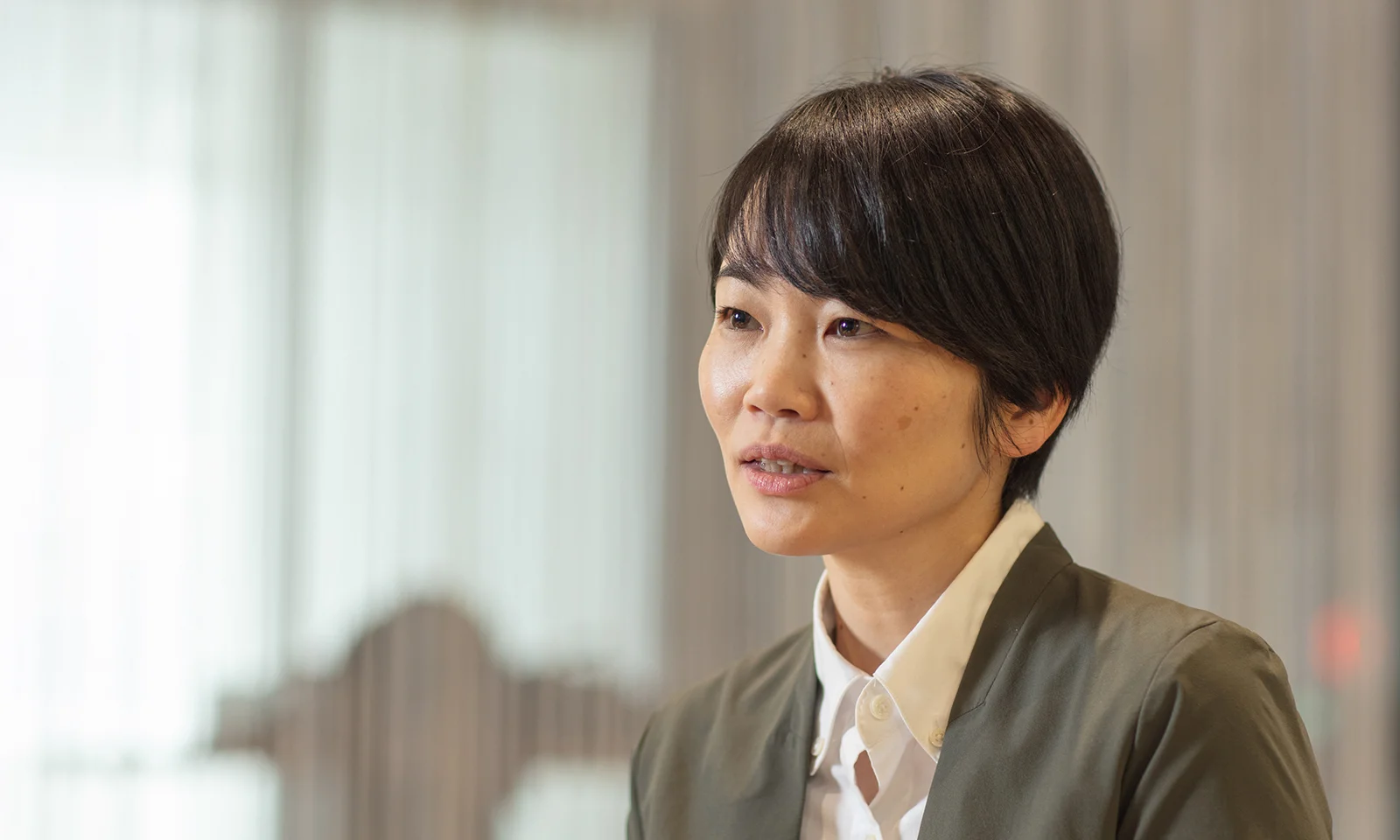
Yamashita joined DENSO with the dream of working overseas, but she was initially assigned to onsite tasks in the company’s domestic logistics operations. Though she continued to appeal to her boss to work abroad, it did not come out as she wanted.
Yamashita: “Thinking back, I had originally hoped to go and work overseas, although I hadn’t thought through the details of that plan. I realized this during my third year at DENSO. At the time, I was obsessed with the idea of working in another country, and had even been thinking about applying for other jobs in order to work abroad. That’s when I stumbled across a human resources training program that sends participants to study abroad at an overseas graduate school and earn a master’s degree in business administration (MBA). It was exactly what I’d been looking for, so I applied for it right away, but I was rejected in the document screening. It was quite a shock to be ruled out as a candidate without even going to a single interview, but thinking honestly about it now, it’s no surprise I didn’t qualify, because my only motivation was ‘I want to go abroad’, nothing more.
The experience did, however, give me an opportunity to reflect on my life and goals. I began thinking more seriously about what I wanted to do by going overseas, and about what I could contribute to.”
Yamashita hit a wall that she could not make her dream of working abroad true so easily.
She changed her approach to work, focusing on what skills she needed to acquire moving forward. Buckling down and applying herself fully to domestic logistics where she had been assigned, she slowly but surely accumulated a range of useful experience.
Then, in 2008, Yamashita was given an opportunity to move up in her career. DENSO had previously split off part of its logistics operations by establishing a group company, DENSO LOGITEM Corp (hereinafter referred to as “LOGITEM”), and it asked for support from DENSO due to the 2008 global financial crisis.
Yamashita: “DENSO had been expanding its production steadily up until then, but due to the 2008 global financial crisis, we had to temporarily stop the production, and then significantly reduce it. LOGITEM was greatly affected by the issue and was in chaos. So, the headquarters of DENSO decided to dispatch personnel from its logistics division to LOGITEM in order to respond to the issue. As I was striving to gain new skills and expertise, I asked my boss to send me there.”
After a three-month business trip to LOGITEM, being greatly evaluated for her experience and accomplishments there thus far, Yamashita was told to go an extended business trip there for a further year in 2010. Due to the 2008 global financial crisis, it was reviewed how logistics operations of DENSO and LOGITEM was divided, and she took on the great project that part of the operations in LOGITEM was transferred to DENSO.
Yamashita: “I was involved in transfer of the purchasing operations of domestic transportation services, which involved purchasing the transportation services such as trucks and the like in order to transport DENSO products. At first, I began to rebuild the operations from the ground up for transfer. DENSO and LOGITEM members jointly re-examined the complex processes that had previously been carried out manually and eliminated inefficiencies to simplify operations while also digitalizing many processes.
It was a large-scale task, but both companies put together teams which worked together closely, put our heads together, and finally we were able to accomplish our task. It was an important experience for me because I could be confident in myself for the first time.”
Through the project, Yamashita learned an important lesson that would help her succeed in her work as well as she gained confidence.
Yamashita: “There’s a limit in what just one person can do. I had always thought that I could work on my tasks on my own until I joined the project. But as I gained more experience, I felt keenly how many different roles there are at DENSO, and how many different people I had to coordinate with in order to do my job. I realized that we could exercise our skills only after we understood our roles and policies for our jobs each other and we came together.
Therefore, I looked for people who shared same goals as mine in order to bring them together as a team. In this project I learned the importance of making a team and effectively communicating in it for my job. If I had worked overseas right after joining DENSO, I would never have learned these valuable lessons.”
Overseas at last: a new environment to grow as a manager
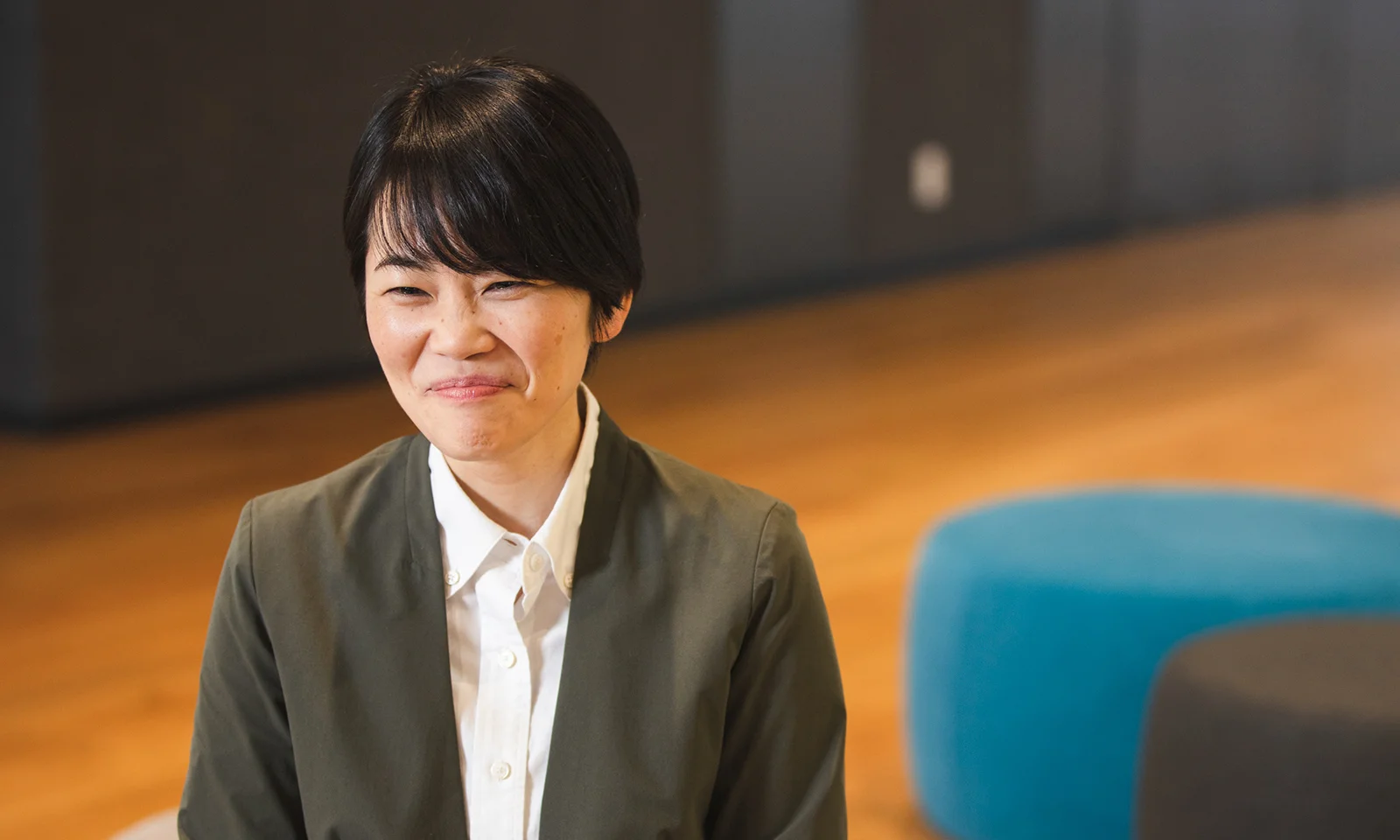
Yamashita had built up a wealth of experience at DENSO in domestic logistics operations when in 2016 she was ordered to transfer to DENSO Europe. Her mission was to help the company lead logistics operations in Europe as a regional headquarters, while also addressing local issues such as supply risks in day-to-day operations, the newly issued Japan–EU Economic Partnership Agreement, and the Brexit situation. She also began working in a managerial role. In addition to her English, Yamashita’s other strengths had been fully recognized, and her dream of working overseas had finally come true.
Yamashita: “Throughout my years working in Japan, I still held on to that desire to work overseas, though it was not as strong as it used to be. But one of the company executives, who had helped me throughout my career, helped me to go and try working abroad. It was the time when my efforts finally paid off.”
Through her experience working in Europe, she learned the importance of valuing a more diverse range of personal values and ideas.
Yamashita: “Associates at DENSO Europe in the Netherlands came from many different countries, and they all had different values and ways of thinking. Moreover, our manufacturing and sales subsidiaries were scattered throughout Europe, and the operational approaches I had considered the norm in Japan didn’t always work so well.
As I work with my colleague in Europe, I realized the importance of understanding and listening to what others had to say rather than trying to force my own ideas and approaches on them. I focused a lot on listening carefully to others.”
Yamashita rethought the ways in which she communicated and interacted with other members, improving her communication skills and thus refining her abilities as a manager.
Yamashita: “Before going to Europe, I used to think of a conversation at work as a kind of debate, and I enjoyed ‘winning’ these debates with others. However, looking at it from different angle, I pointed out the mistakes of the person I was talking to and attacked them negatively.
By encountering a wider range of ideas and value systems [in Europe], I learned to consider the other person’s viewpoint, and this changed my way of doing things. Of course, nobody wants to make mistakes, and they may come from the organization itself or its operational rules and frameworks. I realized that the most important thing is how to create operation systems which employees do not repeat the same mistakes with. So, I began to think that I wanted to talk out the true cause of problems together with the team to find the measures to prevent recurrence that the team members can accept.”
After returning to Japan, Yamashita wanted her team members to have experiences that would give them greater confidence.
Yamashita: “I make sure to thoroughly explain the background, goals and expected results when I let my team members take care of their tasks. I try to ask my team members what they think of their issues or what are their solutions and give them sufficient time to think of those. I try not to let them know my ideas in advance because my ideas may be answers for them. That makes them thoroughly think by themselves.”
From dream chaser to dream supporter
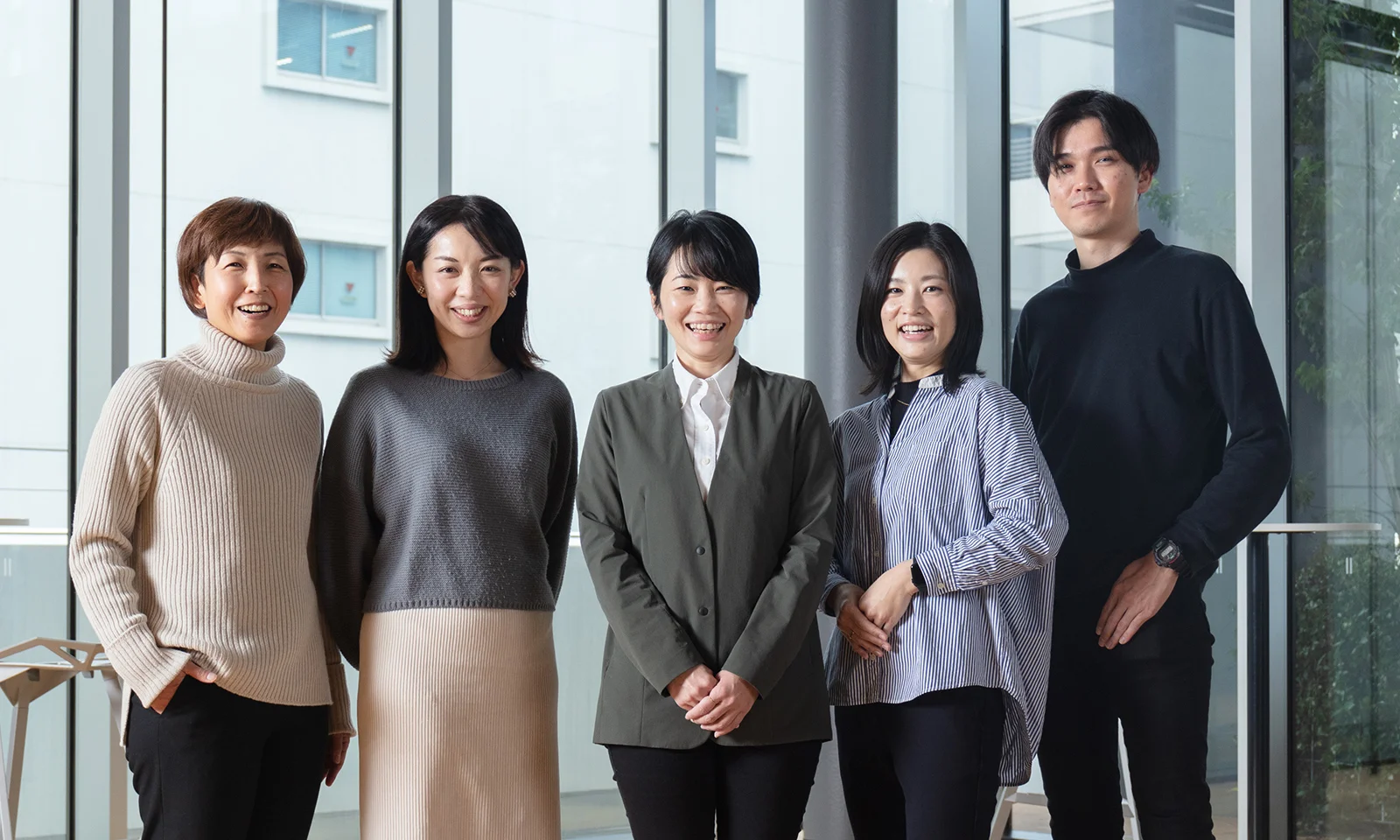
English skills was not enough to get Yamashita where she wanted in her career, so she buckled down and steadily built the skills and relationships of trust needed to progress. Although once desperate to find a way to work overseas, she now looks back on her experiences in a more objective and positive light.
Yamashita: “I’m the type who grew up in a slow but steady manner, taking long route or stopping by somewhere. Reflecting on all my experiences thus far, I feel that all of them were necessary to create what I am. Every time I encountered setbacks along my working life, my colleagues and bosses helped me, and so I could pull through. That's why I'm so grateful to have been able to continue this career.”
She didn’t get this far on her own; her success was only possible with the help of others. With this in mind, she is shifting her perspective from inside of herself to others, and it leads to her new goals that she would like to expand her activities.
Yamashita: “Over the past few years, I’ve been working to standardize EPA-related tasks not only for DENSO, but for the automotive industry as a whole, while also introducing digital tools into these operations. As automotive industry has wide range of companies such as vehicle manufacturers, components manufacturers and material manufacturers, we cannot complete the application of EPA throughout the industry without our teamwork of many companies.
Although goals and viewpoints differ from company to company, I am striving to bring everyone together as one team to disseminate EPA-related efforts throughout the automotive industry, as this will raise the reputation of made-in-Japan products and make it easier to provide products to customers around the globe.”
She feels similarly about her English skills, a longtime personal strength.
Yamashita: “English skills are kinds of tool, but you can broaden your world making use of them. In the future, I would like to teach English and give an advice of useful global business skills to people who are interested in broadening their career opportunities.”
From a dream chaser to a dream supporter. As Yamashita has tirelessly pursued a slow-but-steady path to success, she will identify with and be a strong supporter of many people struggling with their careers.
REACTION
Changing your "Can'ts" into "Cans"
Where Knowledge and People Gather.




Leave a comment